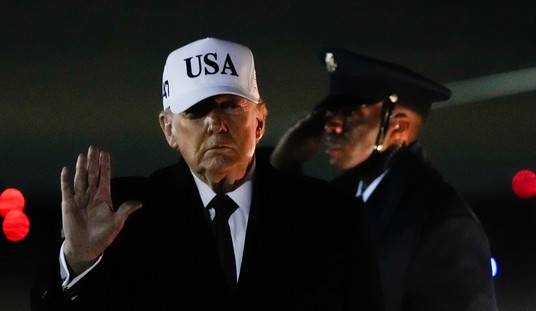It seemed like old news before it even happened. When the Basque terror group ETA announced on Monday that it was calling a “permanent, unrestricted and internationally verifiable” halt to the campaign of murderous violence it has been waging since 1968, a day-long curtain of sullen silence fell over the Moncloa presidential palace. Not a whole lot of cheering was heard from the rest of Spain, either.
When Deputy Prime Minister Alfredo Pérez Rubalcaba finally appeared before reporters, he observed that ETA’s move was “good news, but not the good news we were hoping for.” He added that “the only communiqué we want to read is the one where ETA says that it is going out of business and makes it irreversible and definitive.”
In a hastily scheduled television appearance that same evening, Prime Minister José Luis Rodriguez Zapatero chanted the same two-word mantra he has been trying to get Spaniards to internalize as a way of dealing with the country’s acute economic woes. He urged them to exercise “prudence and caution.”
“Those who may have perceived elements for hope should bear in mind that the road ahead is a long one, because the only thing that counts is when the gang reaches its defnitive end,” the Spanish prime minister said. “We will accept no conditions, no type of political conditions, that might serve the gang’s puposes.”
As if to underscore that there was more to Zapatero’s newfound toughness than just talk, French police immediately arrested the man said to be ETA’s main expert on computers and encryption, while on the other side of the border, Civil Guards took the suspect’s girlfriend into custody.
In ETA’s two-minute, made-for-TV video presentation, a hooded gunman claimed to be making a good faith gesture for negotiations with the Madrid government on a mutually acceptable “political path” for the pursuit of ETA’s separatist goals. It said it was “firmly committed to a process leading to a definitive solution on the political future” of northern Spain’s three Basque provinces which would in turn allow for an end to the “armed conflict” that has claimed over 800 lives .
So what’s not to be glad about?
As Rubalcaba rightly noted, the terrorists are demanding that negotiations be conducted back to front, with one of the parties reserving the right to decide whether it will be bound by their outcome. But the government wants ETA to lay down its arms for good before any negotiations on rewriting the constitution, the territorial reconfiguration of Spain, and a blanket amnesty for some 600+ jailed ETA terrorists can even be contemplated.
Another problem is agenda-related. The Zapatero government has vowed that ETA’s ultimate goal of an independent, racially delimited Basque mini-state in the heart of Europe is just not on the table. But if and when ETA disarms, the government does not dispute that the group’s above-ground political front parties, banned from contesting elections since 2003, could be reincorporated into the political process and work within a democratic framework towards achieving that or any other goal it pleases.
Seven years in the wilderness has left ETA’s avatars somewhat more dubious about the usefulness of violence and somewhat more receptive to the idea that there is more to be gained from a seat at the table where Spain’s wealth and power is divvied up. That is why they are desperate (and the government knows they are) to get washed in the cleansing suds of democratic legitimacy in time for the May 2011 municipal and regional polls that will decide the balance of power in Spain until general elections are held the following year.
Then there is the matter of the, er, pistol on the table. ETA has not even promised to disarm. Only to “permanently” refrain from firing the weapons that it has no intention of relinquishing. Its leaders have merely hinted they just might disarm if and when they decide that “the Basque people’s right to self-determination has been respected.”
In addition, Rubalacaba scoffed at the idea that “international observers” should be involved in verifying anything at all, establishing a moral equivalence between states that live under the rule of law and a gang of terrorist murderers.
Indeed, no changes in security alerts are contemplated at present, given that the last time ETA suckered Zapatero into “peace talks,” the terrorists decided to punish him for “not keeping his promises” by blowing up a huge parking ramp at Madrid’s airport, crushing two people to death. That was in December 2006.
Just the other day, the Monday before Christmas, three hooded gunmen staged a daylight stickup near Lyon, where they made off with computer programs, machinery, and plastic blanks used to make secure credit cards and magnetic access cards. What does that tell us about ETA’s intentions?
According to Rubalcaba, it may be trying to show that operational weakness has nothing to do with its willingness to talk to the Spanish government. Or it may be something considerably more sinister than all that, and today’s announcement might be another part of it. Perhaps it will not be long until we find out.









Join the conversation as a VIP Member